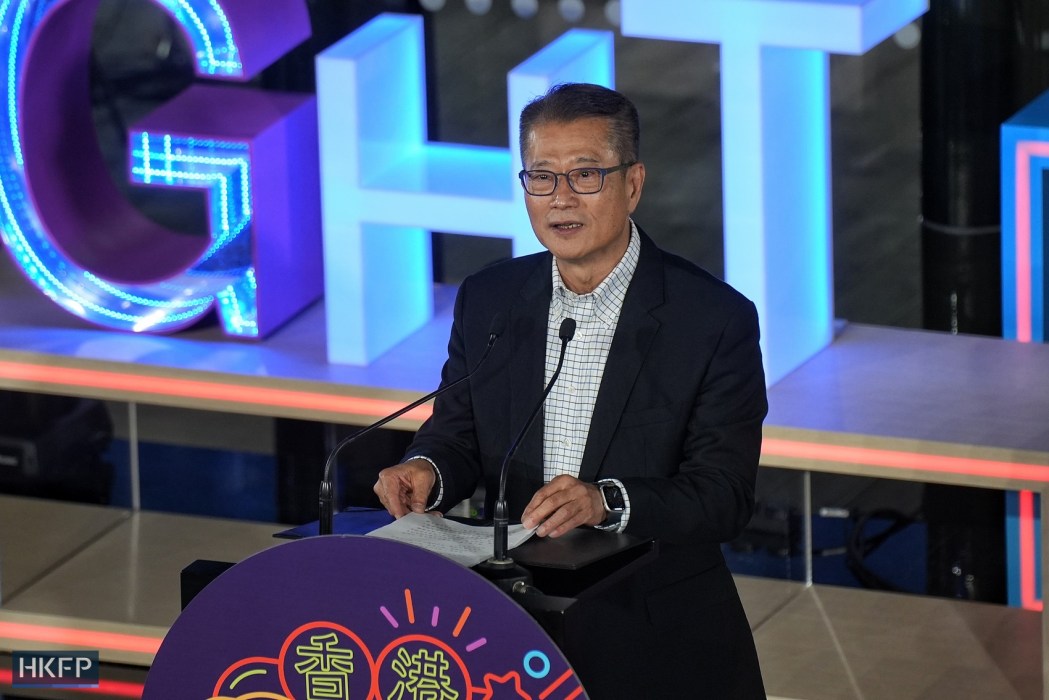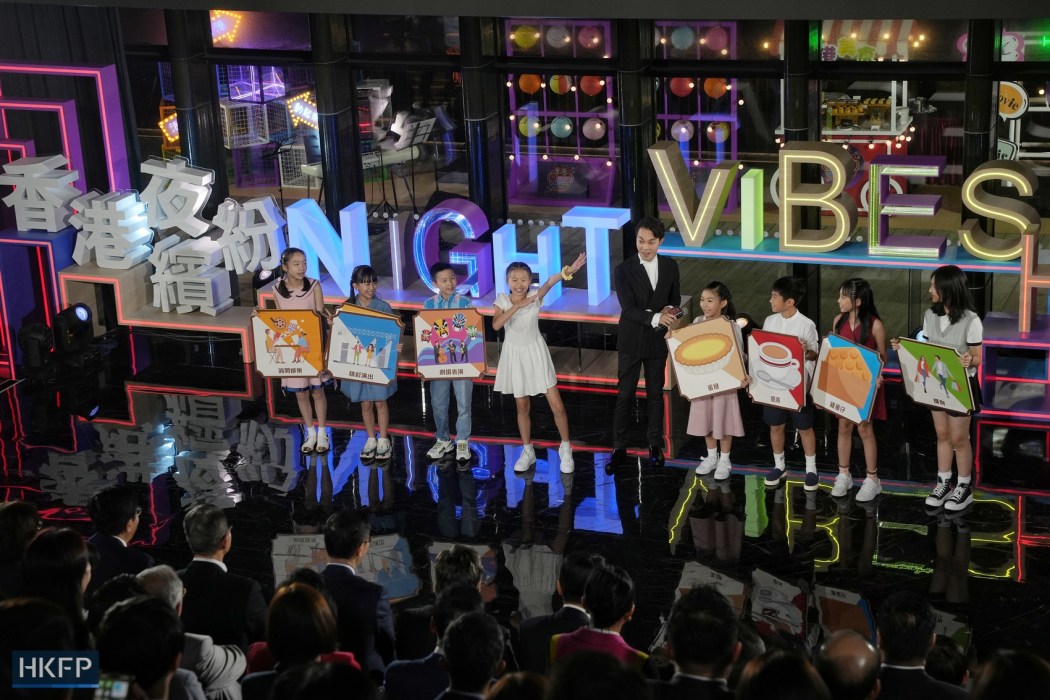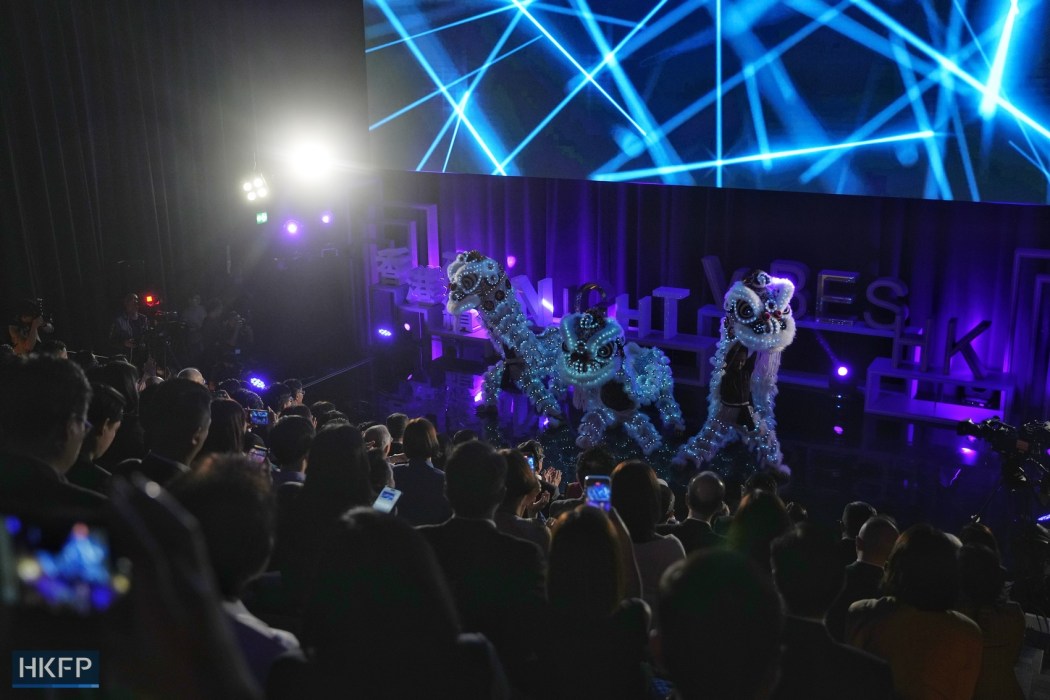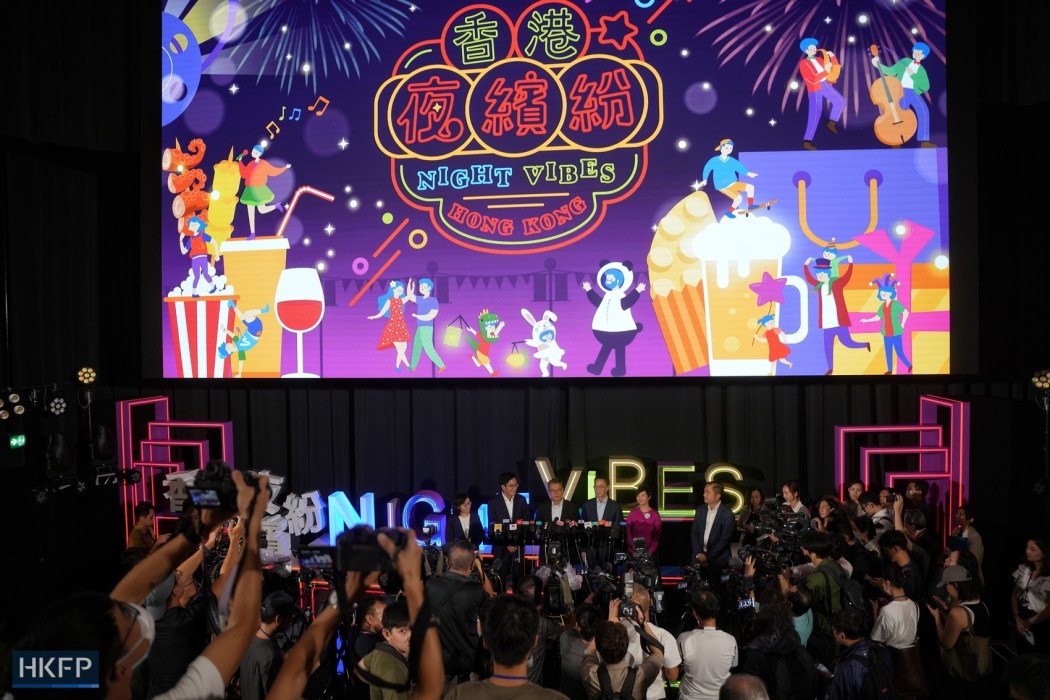Hong Kong has launched a nightlife campaign to “boost its night-time economy”, financial chief Paul Chan had said, amid a weaker than expected economic growth outlook.

“This event was led by the Hong Kong government, and by joining forces with all walks of society, we hope to boost night-time business, “Chan said in Cantonese during the opening ceremony of the “Hong Kong Night Vibes” campaign on Thursday.
The campaign will involve night markets, food stalls, movie screenings and live music shows during weekends on both sides of Victoria Harbour, including at Wan Chai harbourfront, Sai Wan harbourfront and Kwun Tong harbourfront, and Avenue of Stars.
Eighty shopping malls across the city will also host events and activities at night in the coming few months, with some extending opening hours until 11pm. The city’s theme parks, Ocean Park and Disney, also announced they would offer more evening activities and extend their opening hours on specific days.
The city’s sole rail transport provider, the MTR, would support the campaign, too, offering passengers a free trip after taking five journeys departing after 10.30 pm. Each passenger can enjoy up to 4 free trips.

Held at the M+ museum in the West Kowloon Cultural District, the ceremony presented various performances, including a lion dance and a group dance in the dark, following by eight children introducing their favourite food and activities during night time.
Over the past month, Chief Executive John Lee, top officials and pro-establishment figures have been promoting the concept of “night markets” and the “night-time economy,” proposing various ideas to encourage after-dark consumption.
Campaigning amid weak recovery
Lee has spearheaded two campaigns to try and make the city “alive and active” since all Covid-19 restrictions were lifted and the borders reopened at the beginning of the year.

The “Hello Hong Kong” campaign, introduced in February, spent at least HK$2 billion to revive tourism, including giving away 500,000 plane tickets and welcome gifts to overseas visitors.
The authorities launched another campaign, “Happy Hong Kong,” in April to boost local consumption in shops and restaurants. Movie tickets were offered to Hongkongers for HK$30 and food fairs were organised across the city.

However, the city’s economy has seen a slow post-pandemic recovery. In July, Hong Kong recorded 3.59 visitors, nearly 31 per cent less than the number of visitors in July 2019.
In June, the value of retail sales was the lowest for the month since 2011, excluding 2020 to 2022, when the city was under pandemic-related restrictions.
In August, the government narrowed its growth domestic product growth outlook in 2023 from 3.5-6.5 per cent to 4-6 per cent. According to economists surveyed by Bloomberg on Monday, Hong Kong’s GDP would expand 4 per cent this year, down from previous estimates of 4.6 per cent.
Support HKFP | Policies & Ethics | Error/typo? | Contact Us | Newsletter | Transparency & Annual Report | Apps
Help safeguard press freedom & keep HKFP free for all readers by supporting our team

LATEST FROM HKFP
HKFP has an impartial stance, transparent funding, and balanced coverage guided by an Ethics Code and Corrections Policy.
Support press freedom & help us surpass 1,000 monthly Patrons: 100% independent, governed by an ethics code & not-for-profit.











